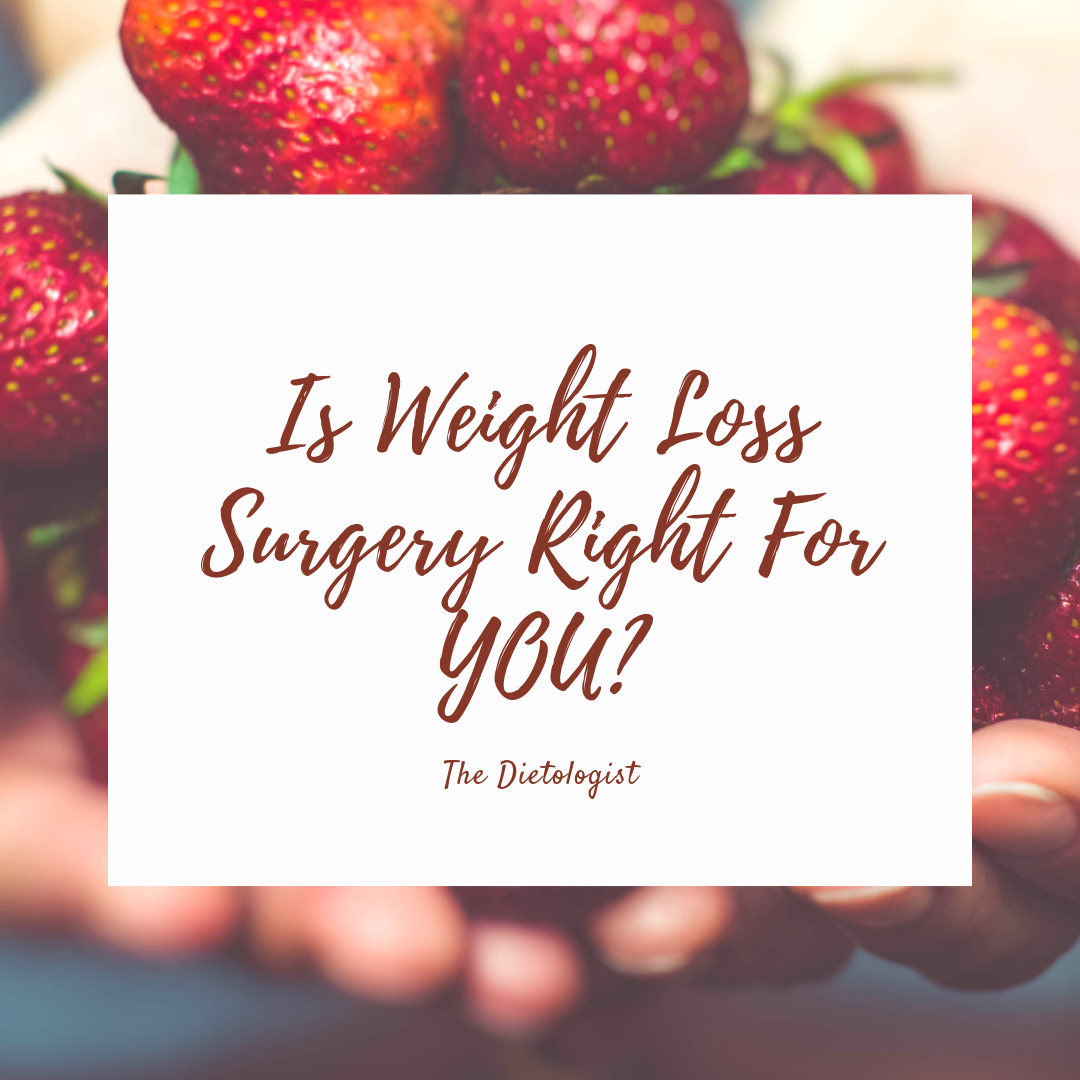HOW TO DEAL WITH CRAVINGS
Food cravings are one of the most difficult things to deal with, whether it is pre or post surgery. Cravings are often the result of learned habits and emotional eating that have developed over a long period of time, and can be triggered by lots of things including stress, boredom and not eating regular meals.

Unfortunately, the foods that we often crave are generally unhealthy and provide little satiety, such as slider foods. Sliders are foods that are easy to eat as they are high in fat and sugar, and include things like chocolate, cake, milkshakes and crisps. The sometimes uncomfortable feelings of tightness that follows when a patient is full doesn’t occur as often with softer foods and sliders. Sliders generally don’t help you feel full and can cause symptoms of dumping if you’ve had a sleeve, bypass or mini bypass. As I always say, do not rely on dumping syndrome to manage your cravings as not every patient will dump, and you’ll be extremely upset if you thought dumping would stop you reaching out for the bag of crisps or bar of chocolate!
Here are some great ways to reduce cravings.
Remove the concept of a ‘diet.’ One of the most counter-productive things that anyone can do when changing their eating habits is to restrict and remove the foods that they enjoy the most, as it can lead to an unhealthy binge / restrict cycle. Remember that you aren’t on a diet, you’re changing the way you eat for the rest of your life. You can still have what you like to eat, just in moderation.
Don’t skip meals. When you skip a meal you are more likely to feel extreme levels of hunger later on, which will intensify your cravings. Aim to have regular meals and don’t spend the day grazing as this will lead to weight regain after WLS.
Plan and prepare your meals in advance. Make your planning time easier by creating a meal plan in advance for the coming week, working out the ingredients you are going to need and then ordering the food to be delivered. This is particularly useful in the first few months post-surgery.
Eat mindfully. How we think about and consume our meals can have an enormous impact on our weight and relationship with food. Take your time, cut your food into small pieces and chew slowly, putting cutlery down in between bites. Eat at a set time and listen to your body. Remember that it takes the body about 20 minutes to realise when it is full, so by slowing down it is more likely that your body will tell you when it is full. When you’re comfortably full, stop.
Keep high-protein snacks nearby, and take them with you when you leave the house. This will ensure that you are able to eat when you feel hungry and will reduce the cravings you feel.
Ask yourself some questions.
Are you hungry or is your body simply following a habit that you have created? Have you been stressed and are reaching for comfort food? Is the food that you’re craving a healthy choice? Are there any healthy choices you could make instead? (this is where prepping and planning your snacks really does help) Consider whether you are thirsty instead of hungry before you reach out for food.
Distract yourself. Indulge yourself in things that you enjoy to take your mind off the foods that you are craving. Go for a walk, read a book, keep your hands busy with word searches, crosswords, jigsaws, spend time with friends and family, watch your favourite films or listen to music.
Change your environment.
This isn’t always easy, but try and avoid going to places that have easy access to the foods that you are craving, such as places with snack bars and vending machines. If you’re working from home, don’t work from the kitchen.
What if this still doesn’t work?
Eat what you are craving, just in a very small amount! Instead of eating a box of chocolates, buy a small bar. Have a small glass of wine instead of three large glasses. Having things in smaller packets, glasses, containers, plates can help manage portions.
Are you struggling with cravings? At The Dietologist I can assess and take the time to get a better understanding of your health, relationship with food, weight struggles, lifestyle demands and medical conditions, and work with you to help guide and support you post surgery.
To find out more, book a
Discovery Call, or sign up to my
8 week program.



